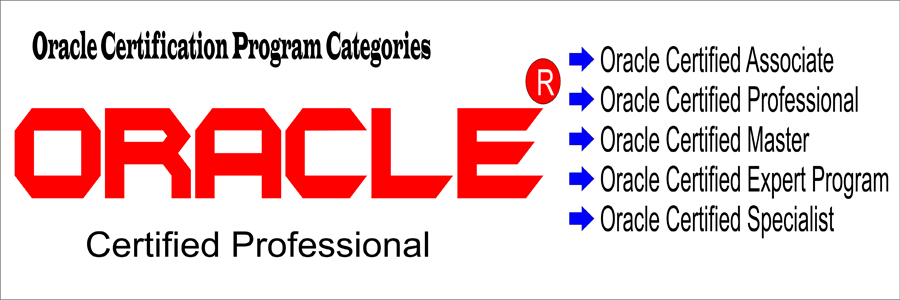Database and Storage

Oracle OCP Training
Tags :

Oracle OCP Training is basically for the OCP certifications, required to prove oracle professionals. hands-on course will teach you to effectively plan, install, configure, administer, query, troubleshoot and manage Oracle Databases. All books and materials are included. OCP certification is distributed among three Parts:
The course will prepare students for the Oracle exams, as well as deliver a foundation in the real world application of their database skills.
This course will follow the steps to become an Oracle Database 11g Administrator Certified Professional, including the associate certification path to get you started. Through training, experience, and official testing, we ensure that you walk away with a strong foundation and validated expertise in the advanced Oracle database management system. ACLM continuously making efforts to introduce professional courses globally. Interested for some other courses too?

EXCELLENTTrustindex verifies that the original source of the review is Google. Aclm institute is best...plzz visitTrustindex verifies that the original source of the review is Google. Peaceful place for study must visit hereTrustindex verifies that the original source of the review is Google. ACLM is best institute in ghaziabad....Trustindex verifies that the original source of the review is Google. ACLM is one of the best IT training . I have completed my digital marketing course recently. Thanks to Amit sir for making me learn the things easily. It has been a great experience learning from you....Trustindex verifies that the original source of the review is Google. Best institute for data analysis and digital marketing. Go for it.Trustindex verifies that the original source of the review is Google. Best institute for digital marketing training. You can learn lotTrustindex verifies that the original source of the review is Google. Really appreciable. ACLM entire team is simply superb.Trustindex verifies that the original source of the review is Google. I've completed my Power BI and SQL course from here. The classes were very informative and consisted of various case based assignments for hands on experience of the tools and easy understanding.


ACLM, sincerely thanks to our entire supporters to make it successful and made a brand globally for Data Analytics.
We Promise that our entire team is always helpful endevaour.
Education is the key to success - Indira Gandhi
| Cookie | Duration | Description |
|---|---|---|
| cookielawinfo-checkbox-analytics | 11 months | This cookie is set by GDPR Cookie Consent plugin. The cookie is used to store the user consent for the cookies in the category "Analytics". |
| cookielawinfo-checkbox-functional | 11 months | The cookie is set by GDPR cookie consent to record the user consent for the cookies in the category "Functional". |
| cookielawinfo-checkbox-necessary | 11 months | This cookie is set by GDPR Cookie Consent plugin. The cookies is used to store the user consent for the cookies in the category "Necessary". |
| cookielawinfo-checkbox-others | 11 months | This cookie is set by GDPR Cookie Consent plugin. The cookie is used to store the user consent for the cookies in the category "Other. |
| cookielawinfo-checkbox-performance | 11 months | This cookie is set by GDPR Cookie Consent plugin. The cookie is used to store the user consent for the cookies in the category "Performance". |
| viewed_cookie_policy | 11 months | The cookie is set by the GDPR Cookie Consent plugin and is used to store whether or not user has consented to the use of cookies. It does not store any personal data. |
PL / SQL for Professionals (Designed by Experts). Learn to handle huge data quickly
Thank you for submitting the form.
WhatsApp us